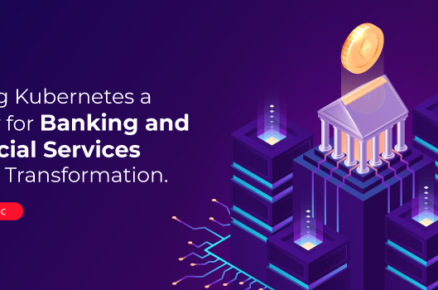What is AI?
Artificial Intelligence is the defining a massive transformation in the world of technology and data analytics. Artificial Intelligence helps machines to learn, and then perform actions and further analytics on knowledge the machines have learnt hence improving the analytical comprehension of machines to a great extent. A voice-activated phone, speech and image recognition applications, autonomous vehicles or even facial recognition tools etc., the smart devices in your home – all of these advances were made possible by Artificial Intelligence technology.
Artificial Intelligence also marks much fundamental advancement in crucial and often time-consuming, organisational processes. It’s poised to dramatically enhance human decision-making and improve an organization’s ability to make predictions, automate business practices, and optimize logistics.
We have mapped a process through which Artificial intelligence boosts the organisation’s ability to predict, automate processes and optimize functions and capabilities:
Accurate Predictions: Human error used to be a huge issue that organisations had to deal with while processing large scale of data and analysis of the same. Mostly because various people work on the same data and each one has a different perspective and approach. Organizations want to be able to forecast what’s going to happen in their business much more accurately and consistently, at both the macro and micro level.
Automation of lengthy and complicated processes: Performed manually, many organisational processes occupy a lot of an employee’s time. With AI, employees are free to focus on higher-value work.
Optimization of functions: This could span from optimizing routing, logistics and marketing spend to configuring your cloud installation.
How to build sustainable competitive advantage with the help of Artificial Intelligence:
Creating a robust Artificial Intelligence (AI) strategy is process in which we work out ways to use the technology in order to build a sustainable competitive advantage. When we advise our clients here are six Best Practices for AI-advantaged firms.
The conclusive aim of creating a strong corporate strategy is to build sustainable competitive advantage which will deliver a superior return on investment, If implemented properly, an “AI strategy” grounded in deep technological understanding, is just this.
Much of what currently passes as “AI strategy” – corporate choices on what Machine Learning (ML) tool to action – are effectively vendor-driven learning exercises. This can be a good way to test the technology, and learn how to use it, but it is not the same thing as a long-term strategy.
So how does Best Practices in Artificial Intelligence approach this?
Artificial Intelligence advantaged organizations use three strategic tools to build their businesses
- Transformation of customer proposition
- Artificial Intelligence flywheel economics
- Virtual value chain propagation
And there are three core assets at the heart of Artificial Intelligence competitive advantage
- Data
- Talent
- Trust
Three strategic principles, none of them new but all given a leverage by AI – will define how competitive advantage in AI is captured.
At the heart of all three is clarity on what business you are in, with which customers and with which value proposition. This is not a set of questions that can be outsourced to AI.
Transformation of the customer proposition
There are two aspects to this:
First: The chance to break the traditional scope and scale customer proposition trade-offs.
Second: Since everything is digitized – and then personalized – product producers increasingly end up delivering services to customers
Trade-offs between scope, speed and scale can be radically revisited and may cease to matter entirely.
AI is increasingly powering personalized customer experiences – and enabling many of these trade-offs to be broken.
For example, Netflix is capable of suggesting what new content to watch based on your past preferences. This delivers personalized scope in terms of video choice, backed by immediate speed and the huge scale that Netflix can bring to its content sourcing. What is now the AI element would have been a team of smart librarians who had watched all the films and had done extensive research on what people like the customer enjoyed.
Including scope, speed and scale is difficult in the world of digital content, even more so in the physical world. However, Amazon is on track to deliver – it has colossal purchasing (and hence pricing) scale, offering a wider array of SKUs as compared to anyone else (scope) and is now striving for speed of one-day delivery. It also has an increasingly good idea of what you will buy next. AI is mission-critical to make manageable the huge complexity of this operation.
Comprehensive text analytics and sophisticated semantic technologies allow us to identify trends and patterns, extract key meanings, automate the classification of new information, and summarize complex text and data. Adding self-learning technologies like Machine Learning on top of this allows you continuously to improve how things are processed. How can this improve your business? Below are a few examples:
#1 Demand Generation: The Internet has impacted how people find and buy products and services. Even brick-and-mortar businesses have become digital businesses to serve digital-first customers, e.g. people searching and researching possible carpenters before asking what it will cost to paint a house. Analytics and AI allow you to better identify social media users and web visitors early in the buying stage, e.g. think of a Twitter user complaining that their washing machine is not working well. This allows you to leverage social media and SEO to get more web visitors, turn web visitors into qualified leads, nurture leads to become customers and turn customers into ambassadors. You don´t need to segment customers anymore – you can instead provide unique information to people based on their unique history and preferences.
#2 Sales Automation: You don´t need to hire additional sales staff to increase the number of customers who buy your products or services online. For prospective customers who need help in understanding their requirements and what solutions they need, AI will make this interaction more personalized, optimized, and consistent. Amazon claims that 35% of their sales comes from online recommendations – this supports changing buying trends where people are looking to their networks for trusted information before they purchase. To boost your sales results – use analytics and AI to recommend the best solution.
#3 Business Intelligence: AI allows you to better learn from the past to predict – or change – the future. Learn from your historic data and information to identify future opportunities and risks. This is how T-Mobile has identified the customers that plan on cancelling their phone subscription – and then T-Mobile approaches them before they decide to do it. This is how the Santa Cruz Police Department predicts when and where crime will happen – and then sends police officers to the region to prevent the crime or to improve community safety. This is how the University of Kentucky calculates the chance of a student dropping out of classes – and then engages them before they decide to leave.
#4 Online Support: Don´t force customers to call or email you to get support or help. Get them instead to explain their problem to a machine or virtual agent and let AI guide them to the right way to solve the issue. Use this AI gateway to provide self-service and instant gratification for more than 80% of support inquiries. If urgent, direct action is required by your organization, you can identify this in only a few minutes and intervene with in-person, second level support if needed.
#5 Ensuring Compliance: Reduce your compliance cost and risk by using AI to automate information management compliance. Don´t rely on staff to identify, capture, and classify important email, documents, or records. AI can automate this for 90%+ of electronic information that has value for your organization or for data which is subject to regulatory record-keeping requirements or compliance.
Looking to leverage Artificial Intelligence in your enterprise to take on competitive edge?
Talk to Tyrone about how we can support your journey with products and solutions engineered to accelerate transformation and business growth.
Explore AI for Business: https://tyronesystems.com/aiforbusiness/












